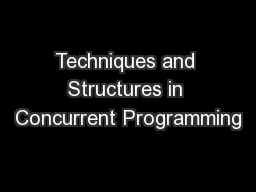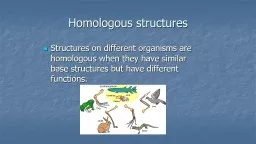PPT-Social Structures
Author : pasty-toler | Published Date : 2015-12-05
Essential Question How is my social status defined Social Structure Exchange Status Competition Ascribed Conflict Achieved Cooperation Master Accommodation Role
Presentation Embed Code
Download Presentation
Download Presentation The PPT/PDF document "Social Structures" is the property of its rightful owner. Permission is granted to download and print the materials on this website for personal, non-commercial use only, and to display it on your personal computer provided you do not modify the materials and that you retain all copyright notices contained in the materials. By downloading content from our website, you accept the terms of this agreement.
Social Structures: Transcript
Download Rules Of Document
"Social Structures"The content belongs to its owner. You may download and print it for personal use, without modification, and keep all copyright notices. By downloading, you agree to these terms.
Related Documents














